Greensboro Montessori School's Junior High faculty and students recently partnered with North Carolina A&T State University on a research project involving shiitake mushrooms. Shiitakes are edible mushrooms high in vitamins and chock-full of other health benefits. They're native to Eastern Asia and sold in farmers markets throughout the U.S. for upwards of $16 per pound. Recently, our Junior High students wanted to learn more about these delicious fungi.
On Fridays, our Junior High students participate in their careers program. Careers is one of Greensboro Montessori School's differentiating aspects of our adolescent curriculum. It equips students with real-world management skills by charging them with running a micro-economy. Students research and participate in various career teams such as finance, management, farming, culinary arts, research, design, production, and publishing. These career teams buy and sell from each other.
The farm team harvests produce from the School's permaculture gardens and sells it through their business, Maria's Market. Merging their science and careers curricula, the students decided that growing shiitake mushrooms to sell at Maria’s Market would be a worthwhile endeavor. They would be able to learn about the fungi kingdom, saprophytic organisms, mycelial networks, the medicinal value of mushrooms, and the details of producing and selling a high-value commodity item.
To help guide our students, Junior High science faculty, Tim Goetz, reached out to faculty at N.C. A&T. He asked if they would be willing to provide expert advice to our students, and they welcomed the opportunity to partner with us. This project-based science project began with a visit from Felicia Anike, a research specialist at N.C. A&T studying mushroom science and fungal biotechnology. She was joined by Melvin Mensah-Bonsu, a graduate research assistant, and Janelle Robinson, a graduate fellowship student. Felicia, Melvin, and Janelle gave a presentation to our Junior High students on the history, growing, and uses of shiitake mushrooms. They also demonstrated the proper drilling, inoculation, and waxing of the white oak logs on which these mushrooms grow.
The week following the presentation, all of our Junior High students cycled through the shiitake inoculation project. They drilled holes into freshly cut white oak logs sustainably harvested from Greensboro Montessori School's campus. Then, they plugged each hole with the spawn. Finally, they covered the holes with wax to keep the spawn safely in place and protected from other opportunistic fungi species.
The inoculated logs will sit for around six months as they become fully inhabited by the shiitake mycelial network. Students will then stack the logs and wait for fruiting to begin. It will take around eight to 12 months for the logs to begin producing shiitake mushrooms, but then, we can expect them to fruit for five to six years.
N.C. A&T gave us several different varieties of shiitake mushrooms, and students will be tracking how each performs, in what seasons they fruit, and other specific data points, which we will relay back to the team at N.C. A&T. Our students are excited to track the progress of the logs, and because the logs will fruit for so long, the logs will benefit future students as well. Mostly, we are excited to participate in project-based learning that has purpose and real-world benefits to the community. As our students research, manage, and harvest shiitake mushrooms from the logs, they will also provide a unique and healthy consumable product to the community.
Project-based learning ... this is how we teach science at Greensboro Montessori School!
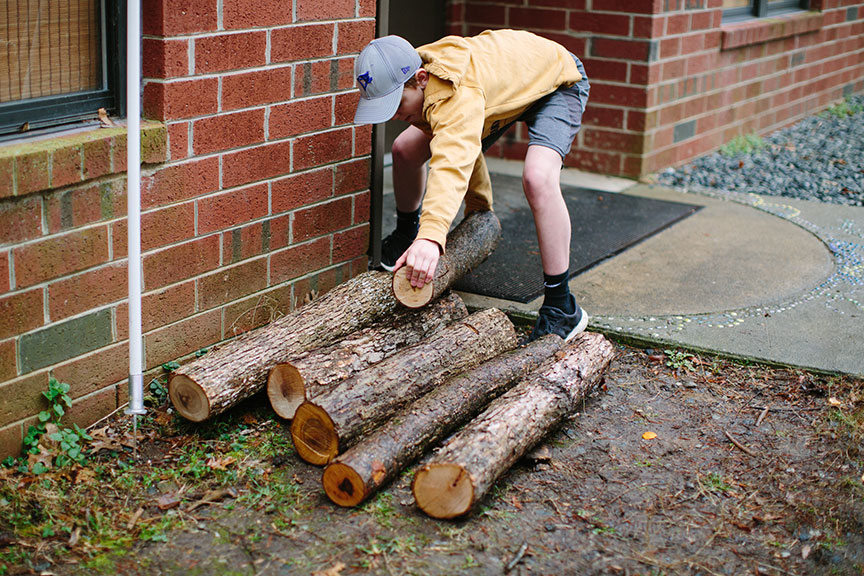
A Junior High student collects a sustainably harvested white oak log to be inoculated with shiitake mushroom spawn.
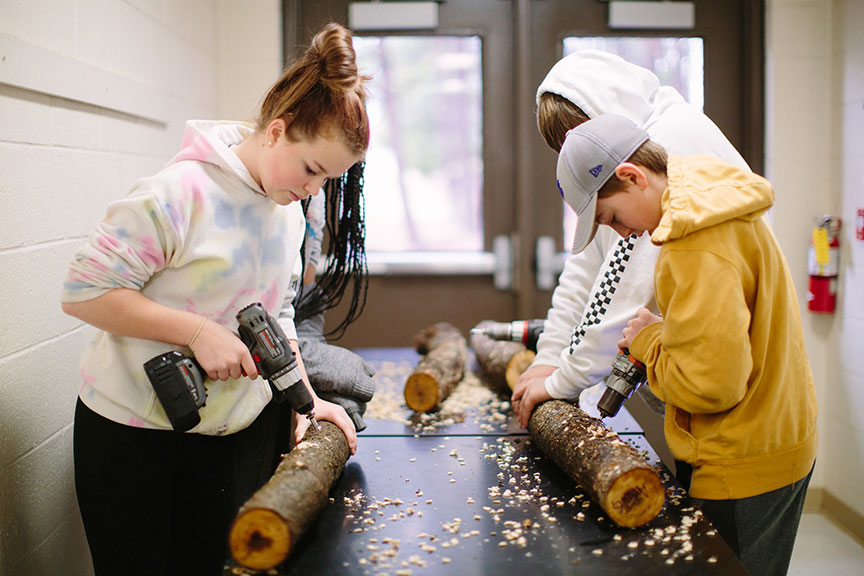
Using best practices they learned from researchers at N.C. A&T, students drill holes into the white oak logs.
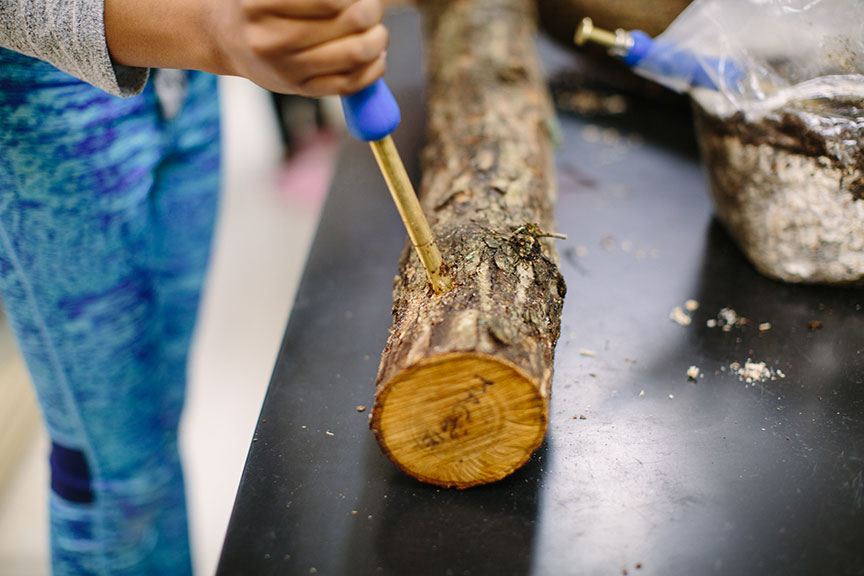
Students inoculate logs by transferring shiitake mushroom spawn into the holes.
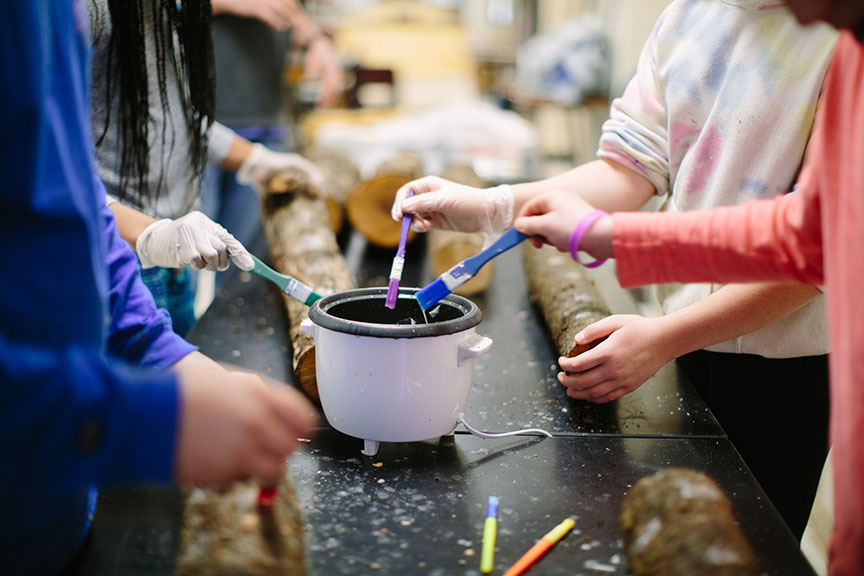
Students use wax to seal the holes, keeping the spawn firmly in place and protecting the spawn from other opportunistic fungi species.
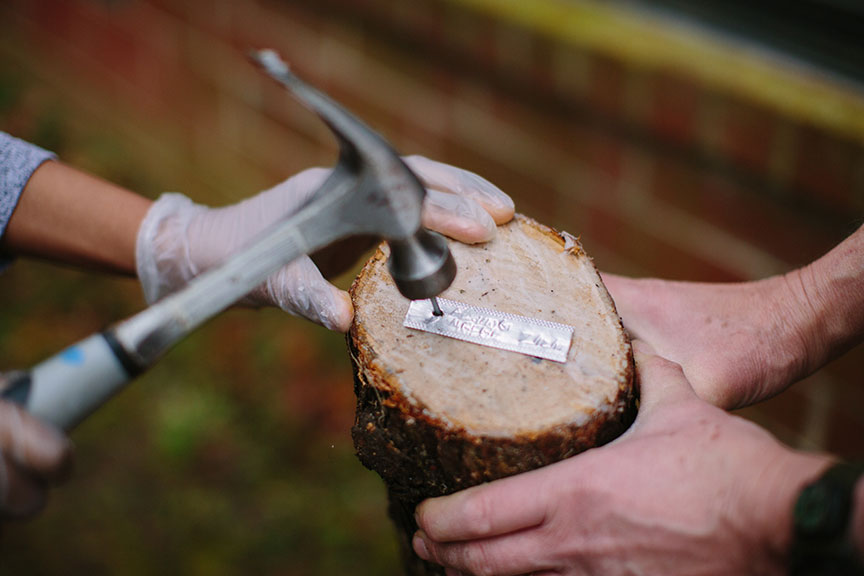
Students label each log, so they can report accurate data points about each mushroom varietal back to N.C. A&T.
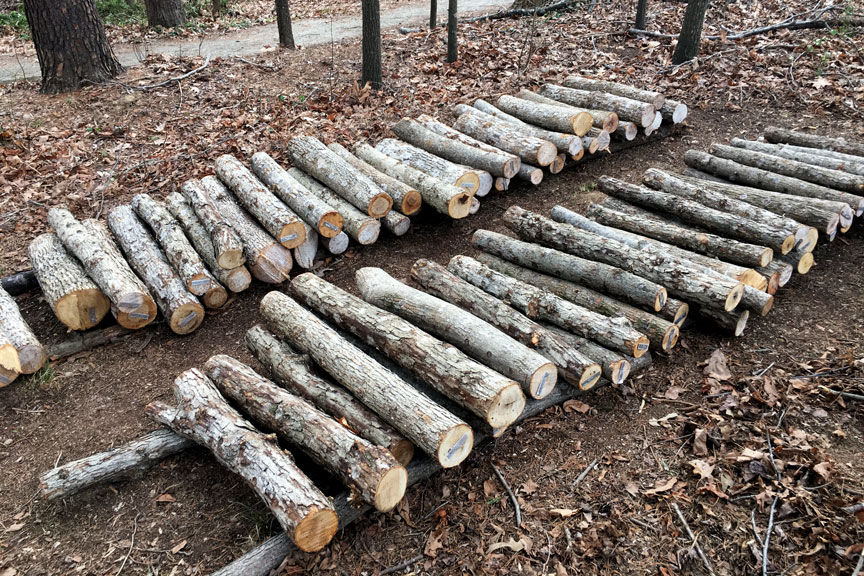
The inoculated logs will sit for around six months as they become fully inhabited by the shiitake mycelial network.
Dr. Omoanghe Samuel Isikhuemhen works in the department of Natural Resources and Environmental Design and is a professor of family and consumer sciences at N.C. A&T. Dr. Isikhuemhen's work centers around mushroom science and fungal biotechnology, and he leads research on mushroom science, production, and use in food and supplements for humans and farm animals. The members of his team have trained farmers to become mushroom growers, authored journal articles, and supervised student research in exotic mushrooms, truffles, and other related fungal biotechnologies. Greensboro Montessori School's Junior High students are the first group of adolescent-age students his team has trained in shiitake mushroom production.


